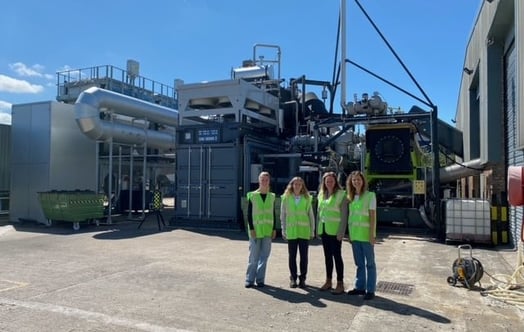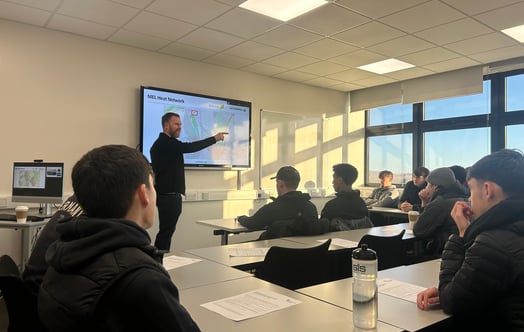In conversation with Maria Yorica, visiting researcher at Imperial College London for Energy Futures Lab, Bindi Patel shares her journey and insights into the progress made towards inclusivity in the energy industry, as well as the challenges that lie ahead.
In the UK, just 2% of buildings are connected to a heat network, but this needs to increase to 20% if we are to meet our net zero target by 2050. To accelerate at the pace needed, the energy industry needs to attract a diverse workforce that is representative of society.
In conversation with Maria Yorica, visiting researcher at Imperial College London for Energy Futures Lab, Bindi Patel, Head of Communication and Customer Experience at Vattenfall Heat UK, shares her journey and insights into the progress made towards inclusivity in the energy industry, as well as the challenges that lie ahead.
Bindi’s journey in the energy sector illustrates the impact of driven and passionate work. Her transition from external roles to becoming an advocate for sustainability and diversity at Vattenfall highlights the evolving nature of the energy sector. It's a journey that highlights the importance of diverse pathways into the energy field, emphasising that passion and purpose can pave the way to sustainability and combating climate change.
The importance of reflecting community diversity
There is an essential need for the energy sector to mirror the diversity of the communities it serves. Bindi states, "The industry is changing, which is encouraging, yet there's a vast landscape of opportunity to enhance diversity and inclusion further." This vision extends beyond gender diversity to encompass a broader spectrum of representation, advocating for a sector that is as varied and dynamic as the society it aims to energise.
The collective effort across organisations is crucial to foster an energy sector that is inclusive and diverse.
Highlighting the impact of diverse leadership, Bindi points to the positive changes within Vattenfall, including having a female managing director. "It's not just about representation; it's about making business sense, " she notes, illustrating how diversity in leadership roles can lead to more innovative, sustainable and socially representative organisational decisions.
Despite the progress, the call to action is clear: there is a substantial journey ahead. The industry needs to build on the momentum, break down stereotypes and create opportunities that reflect a rich diversity of thought, background, and approach. As Bindi says, “The collective effort across organisations is crucial to foster an energy sector that is inclusive and diverse.”
Video player requires marketing cookies.
To view this content please click here to allow marketing cookies.
Bindi's reflections offer more than a glimpse into her personal journey; they outline what needs to happen and it’s for the energy sector to embrace diversity and inclusivity in order to grow at the rapid rate needed. As we look to the future, the message is clear: together, we can forge a path towards a more inclusive and diverse energy landscape.






